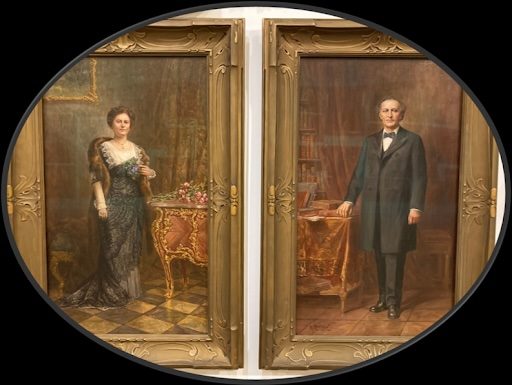THE COMMUNICATION STRUGGLE IS REAL
A while back, one of my American friends texted me on Messenger and said, “Seriously, I really like you.”
I was puzzled and thought, “Does he mean he likes my personality or likes me romantically?” I even Googled what it means when a guy says he likes me, and Google answered: It depends on how he says it.
Later, when he asked me out for a date, I was not sure whether he wanted to just hang out as a friend or a romantic date. In Hong Kong, we use the same word to describe both occasions of going out and we would only say “I like you” to someone we love.
Language differences like this can cause misunderstandings and confusion, making a relationship between people from two different cultures sometimes more difficult.
In Washington, one of the most multicultural states in the U.S., cross-cultural relationships are pretty common. You might have even met some of them on campus.
Madeleine Nicole and Luciano J. Molina are one of the cross-cultural couples at SCC. Nicole is Chinese-Indonesian while Molina is second-generation Argentinian-American. For Molina, the biggest struggle of their relationship is to be accepted by Nicole’s family and friends.
“I would say that we are Romeo and Juliet,” Molina said, adding that both of their friends think of them the same way. They say their relationship is hard since both of their parents have plans for them and think they do not belong in each other’s futures at all.
“Disobeying seems not (to be) an option because Nicole is financially dependent on her father,” Molina said.
Nicole said, compared to some of the Indonesian boys she knows, she thinks Molina is more affectionate and braver in terms of starting conversations with girls, as she recalled how he approached her when they first met.
Molina said he thinks Nicole has been very adaptive to U.S. culture, which has lessened their cultural gap a lot.
“Sometimes Luciano does feel left out when I am with friends,” Nicole said, “because some of my friends may forget he doesn’t speak Indonesian.”
Even though there are lots of obstacles in their relationship, both Molina and Nicole said they hope the other stays happy and confident in the relationship and that they want to create a better future together.
“(We) make sure we don’t hold each other back,” Molina said.
You may know another cross-cultural couple from SCC if you visit the International Education office often.
Michael Komala, who is an Indonesian-born American, met Hikari Akasaki, a student from Japan and an International Peer Mentor at SCC, last summer.

Since Komala was little, he had watched anime and read manga, which he said made him connect with Japanese culture. Instead of having totally different hobbies, Komala and Akasaki said they always watch anime, share J-pop music and play Nintendo games together.
“I can be more open (and honest) to Michael,” Akasaki said.
When she was with another Japanese guy, Akasaki used to endure whatever he did, even things she was uncomfortable with.
“But with Michael, I can be more open and ask him why he does that,” she said.
Akasaki said that in Japanese culture, people don’t open up a lot to others. There was a time at the beginning when Akasaki was not sharing most of her interior thoughts to Komala.
“But Michael wanted me to share everything in my mind and it was hard sometimes to force myself to talk more,” she said. “It did help us become closer though.”
“The biggest difference is definitely trying to be more patient to understand someone who grew up in a different culture,” Komala said.
Since he grew up in a mixture of American and Indonesian culture, “sometimes we end up arguing or debating about things like politics and social situations,” he said.
“We went to Japan during this winter break, and I had to do translations for him all the time,” Akasaki said.
In order to communicate better with Akasaki’s family, Komala is also taking a Japanese class at SCC this quarter.
“I am so happy with him learning Japanese. It will be cool if he can communicate with my family and friends in Japanese next time,” Akasaki said.
Akasaki also said when one of them was mad at the other, sometimes word choices would worsen the situation because one might misunderstand the meaning and became angrier.
Now their biggest relationship goal is to transfer to the same university and try to make time for each other in their everyday schedules, “because we are best friends,” Komala said.
Akasaki also added that she hopes both of them can keep on supporting each other and experiencing more new things together.
Dating across cultures can be more challenging than dating someone who shares your culture, but the experience can also be more special and interesting.
Oh yeah, getting back to the story, about the American guy who asked me out? I told him prior that I could only hang out with him as a friend. But after going out with him, he said he was having so much fun with me and asked me if I would go out with him on a date.
Unfortunately, the language barrier was too much for us to ever really connect, so this was one cross-cultural relationship that didn’t work out.
By Frances Hui,
Staff Writer







